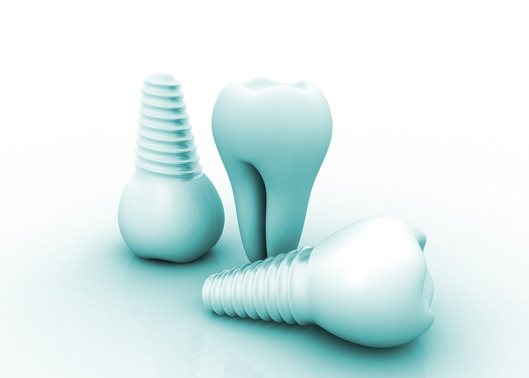Why Can’t Children Get Dental Implants?


A patient should have attained bone maturity before considering dental implants. That is because once the implant has been placed, it is critical that bone fuse to the implant exactly where it has been placed. In a child, bones in the jaw are still growing making it very difficult for the implant to remain stable.
Why is this stability so important? Think about the root of a natural tooth. If the root is displaced because of jaw bone growth, the tooth attached to it would also shift. Teeth shifting can create a malocclusion, a condition where the upper teeth do not properly align with the bottom. This can result in any number of problems from bite issues to teeth ultimately requiring straightening.
A dental implant is intended to function like that of the root of a biological tooth. That is to provide stability for the tooth it supports. The canals or interior of the teeth’s roots also contain blood, pulp and nerve tissue, but these do not have a role in the function of the root of the tooth so their absence with dental implants is not a factor.
With a child still experiencing bone growth, dental implants are impractical, and can actually do harm for future bone growth. When a younger adolescent or teenager loses a permanent tooth, there are options that are temporary that provide cosmetic relief. A flipper, which is used to replace one tooth, is probably the choice most patients make until achieving bone maturity when an implant can be placed.
There have been documented cases where implants were placed in children. Usually in cases like this, the child has failed to develop one or all teeth, and implants are a better option than a denture for a child. There is a possibility that the implants and their restorations may need to be replaced when the child becomes an adult.
A consultation with our dental team will provide the best options for teeth replacement for a child or adult. With the many options available, smile improvements are very attainable. Call 972-264-5795 to learn more.